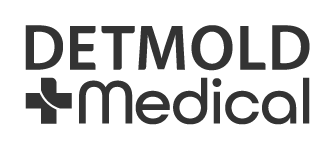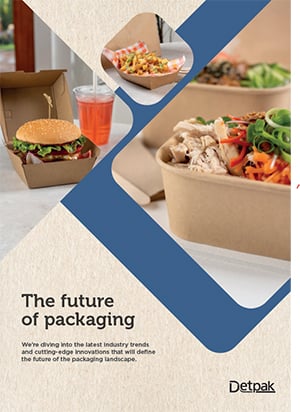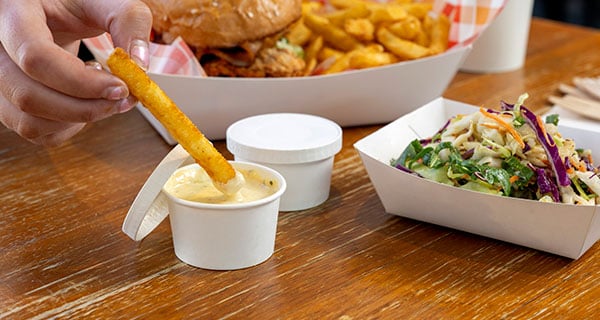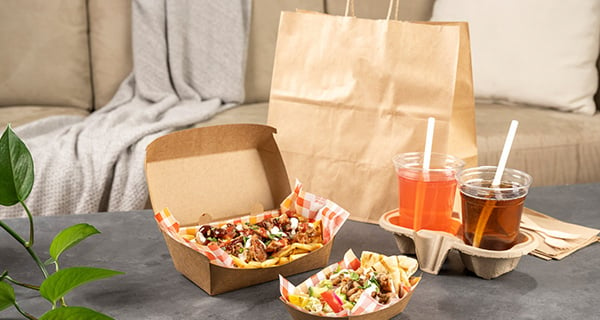Fibre based packaging made from sustainable sources.
To be able to preserve natural resources, businesses need to make informed decisions on the type of materials, and their source, used to make their packaging products.
At Detpak, we’re committed to producing packaging solutions that are produced sustainably using materials, such as paper, paper board, sugarcane bagasse and bamboo.
What’s the difference between bamboo and paper packaging?
The key difference between bamboo and paper-based packaging comes down to the plant that the packaging material is made from.
Bamboo packaging is made from bamboo fibres, which come from the fast-growing bamboo plant. Contrary to popular belief, bamboo is a type of grass rather than a tree, so it can be harvested without damage to the root of the plant, allowing it to quickly regenerate and grow new shoots. Some species of bamboo are ready to be harvested within a few months, and so the cycle continues.
Traditionally, paper packaging has been made from wood pulp, from trees. While trees are a renewable resource when grown and harvested sustainably, the process of growing and harvesting trees typically takes longer compared to bamboo.
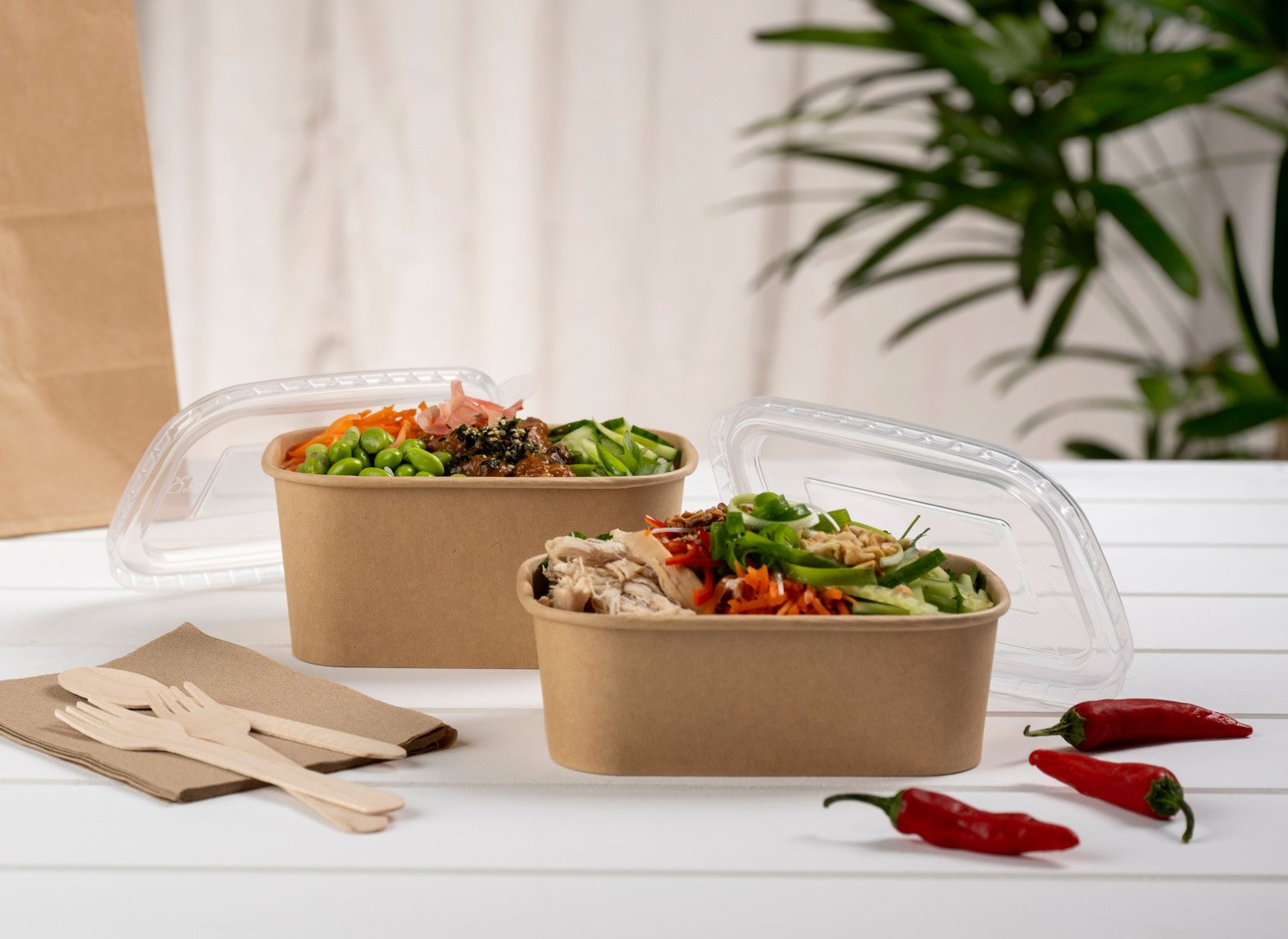
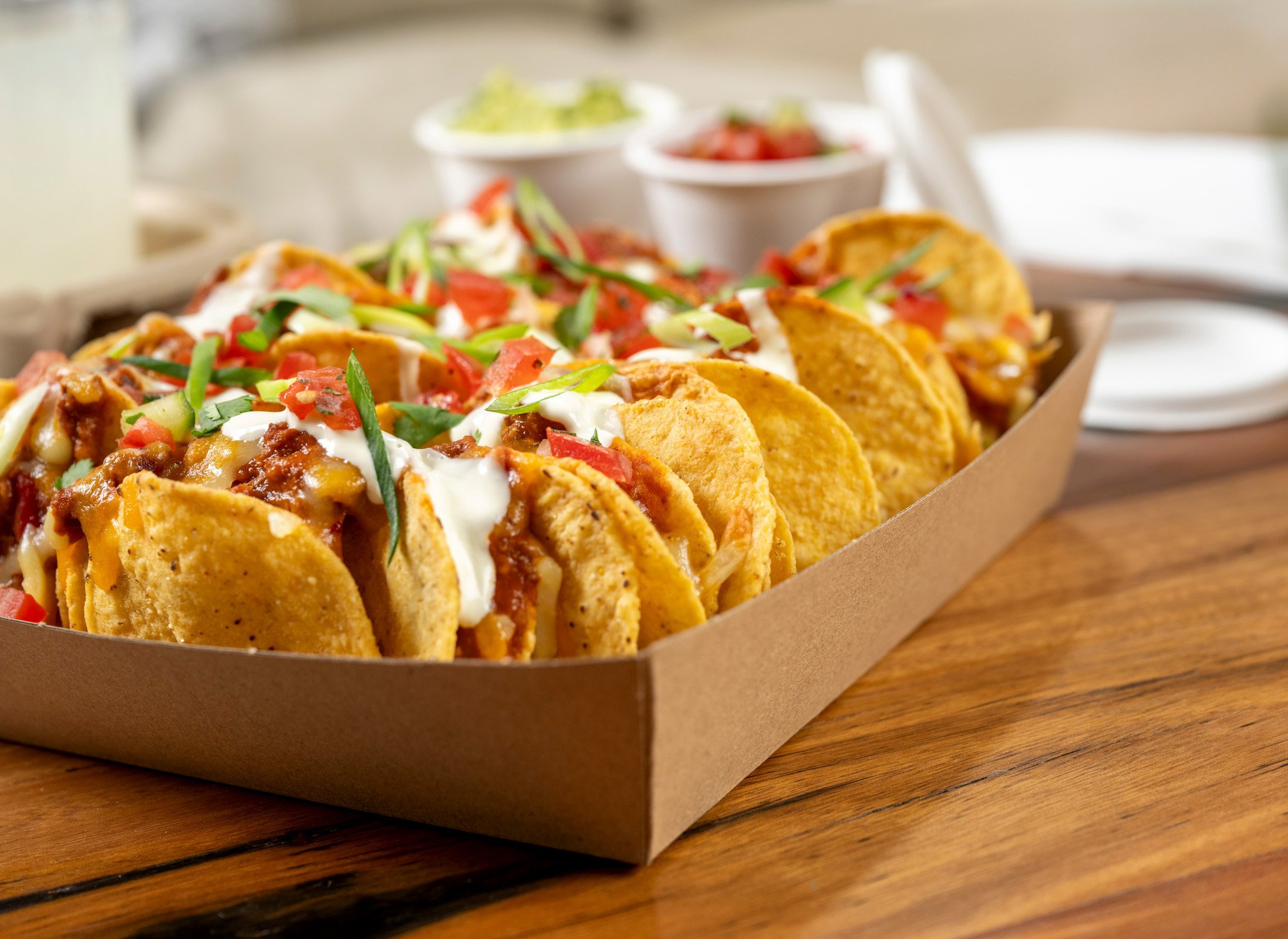
What is certified paper relating to FSC™ and PEFC?
At Detpak, we’re committed to two key chain of custody certifications that provides traceability of packaging materials throughout the supply chain while ensuring that they come from responsibly managed sources.
Using fiber-based packaging is an effective way to reduce plastic waste and embrace a more circular economy. Our market trays offer a sturdy, sustainable option for fresh produce and baked goods. Additionally, our paper plates are made from responsibly sourced materials for a zero-waste dining experience.
Our Detpak manufacturing facilities are FSC™ and PEFC Chain of Custody certified, meaning we can offer certified sustainable packaging products. As part of the certification process, our products have documented traceability through the entire supply chain, from forest to end product.
Key suppliers are audited annually in person, guaranteeing all tree fibre materials are from responsibly managed, sustainable sources, which contain no illegal, controversial or old-growth fibre.
The Forest Stewardship Council (FSC) label is the world’s most trusted certification label for sustainable forestry. Chain of custody certification demonstrates to both your supply chain and your customers that you’re committed to sourcing sustainable materials. It confirms you’ve put processes in place to produce and provide FSC-certified products.
Similarly, PEFC (Programme for the Endorsement of Forest Certification) labelled packaging products indicate the products have been produced using materials sourced from sustainably managed forest, recycled and/ or controlled sources. PEFC certification provides assurance that the forests are managed in line with challenging environmental, social and economic requirements.
Detpak also offers a range of non-tree fibre packaging products, such as our no added PFAS bagasse range. Bagasse material, or sugarcane pulp, is an agriculture by-product, which otherwise would be discarded as waste.
In addition to our chain of custody certifications, we maintain the industry’s highly recognised global standards for food safety and quality consistency, including ISO 22000, ISO 9001 and BRCGS accreditation certifications. That way our customers can rest assured that our packaging products achieve the highest quality standards
Browse our collection of sustainable products to find a sustainable packaging solution that meets your needs.
